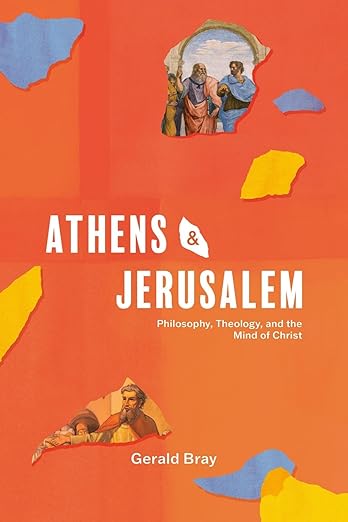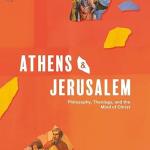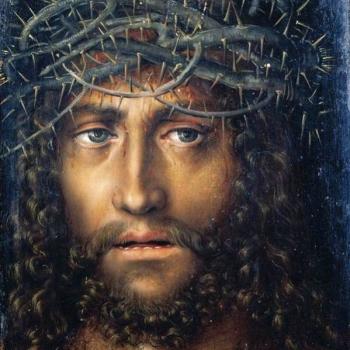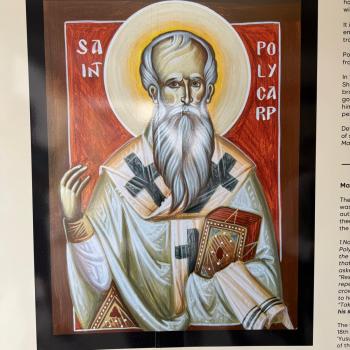It was not until about 1200 A.D. that we had universities to house and promote the acquiring of knowledge and wisdom, but there were precursors who made clear that such institutions were needed what with the developments of disciplines such as the study of law, or medicine, as well as theology. One leading theologian who helped to pave the way forward was indeed Anselm of Canterbury (1033-1109), perhaps the first really great English speaking theologian. Anselm believed that the law of God was what united the revealed truths of the Bible with what was discoverable in nature. Both the Bible and Nature addressed human reason, as Bray points out. Of course Anselm became famous for his proof for the existence of God– ‘God is a being greater than which cannot be conceived’, a truly ontological sort of argument. I once did a graduate paper on this very theory, that my professor said was the most profound of all the so-called proofs for God’s existence. Be that as it may, Anselm was perhaps best known for his motto– fides quaerens intellectum, faith seeking understanding, which I have often adopted as my own approach to life. Why? Because it is not true that ‘seeing is believing’ in every case. Sometimes seeing may lead to believing, but in regard to the higher truths, especially about God, it is believing that leads to seeing and understanding. Remember what was said about Abraham in Genesis, namely ‘Abraham trusted/believed God and it was credited to him as righteousness’.
The discussion of predestination which of course especially goes back to Paul, and perhaps before him as well in the Bible, and this is picked up by Augustine and his Augustinian successors such as the Augustinian monk Luther, and of course Calvin as well and his successors, has been with us since Biblical times, and Bray has an interesting take on this conundrum. “Some people want to say that God foreknows what will happen but does not cause it, and so is not responsible for what might go wrong. Others say he predestines some to eternal life but leaves the rest to their own devices. Neither of these positions make any sense at least not if we are prepared to accept divine sovereignty over creation. Either he is in control or he is not God in the Biblical sense, and so logic compels us to accept that everything that happens good or bad is somehow the fruit of his will. At the same time, God hates nothing that he has made, and he does not force his creatures to act against his will. The terrible truth is that we are naturally rebellious and deserve only condemnation. The idea that going to heaven is some form of entitlement which so many today seem to think is completely alien to the Bible which teaches that our salvation is an act of God’s grace , extended to those whom he has chosen for reasons that are beyond our understanding.” (p. 117).
There are however some serious flaws in this argument, and by flaws I mean, it does not make sense of the whole of the Biblical witness: 1) Rom. 9-11 indicates that God foreknows, but does not cause human evil, so God’s knowing something is not what causes it to happen. Knowing is one thing, willing is another even with God; 2) as we hear in the Pastorals, Christ died as a ransom for all of humanity ( 1 Tim. 2.6), died for the sins of the world, not just the chosen few. Indeed as John 3.16 God loves the world, all the world of humanity, which why he sent his Son to save it; 3) salvation happens by grace through faith in Christ. It is not the result of some being predestined to do something. The discussion of predestination in Rom. 8 has to do with the destiny of those who love God, and as a result are called unto his purpose and kingdom. Those who love God are the called and those destined to be conformed to the image of Christ; 4) election is one thing and is a corporate concept, involving a chosen people Israel, and a chosen person Christ and those who are ‘in Christ’ salvation is something else. Notice that Christ, as God’s chosen one does not need to be saved, rather he becomes the means of salvation. It was Christ who pre-existed and was destined by God to be the world’s savior. We did not pre-exist and so were not there to be chosen in advance. 5) God has provided both angels and humans with a modicum of freedom, which means the power of contrary choice. And as Bray says, God does not force his creatures to act against his will by some eternal (or is it infernal) decree. Just so. Had he done so he would have been acting against his own character,6) for as 1 John 4 says God is love, not merely loving, but the essence of love. And in light of the great commandment to love God and neighbor, we should bear in mind that love cannot be coerced, forced, predestined. It has to be freely received from God, and freely given. (on all of this see my Biblical Theology, and my little book on God’s character entitled Who God Is).













